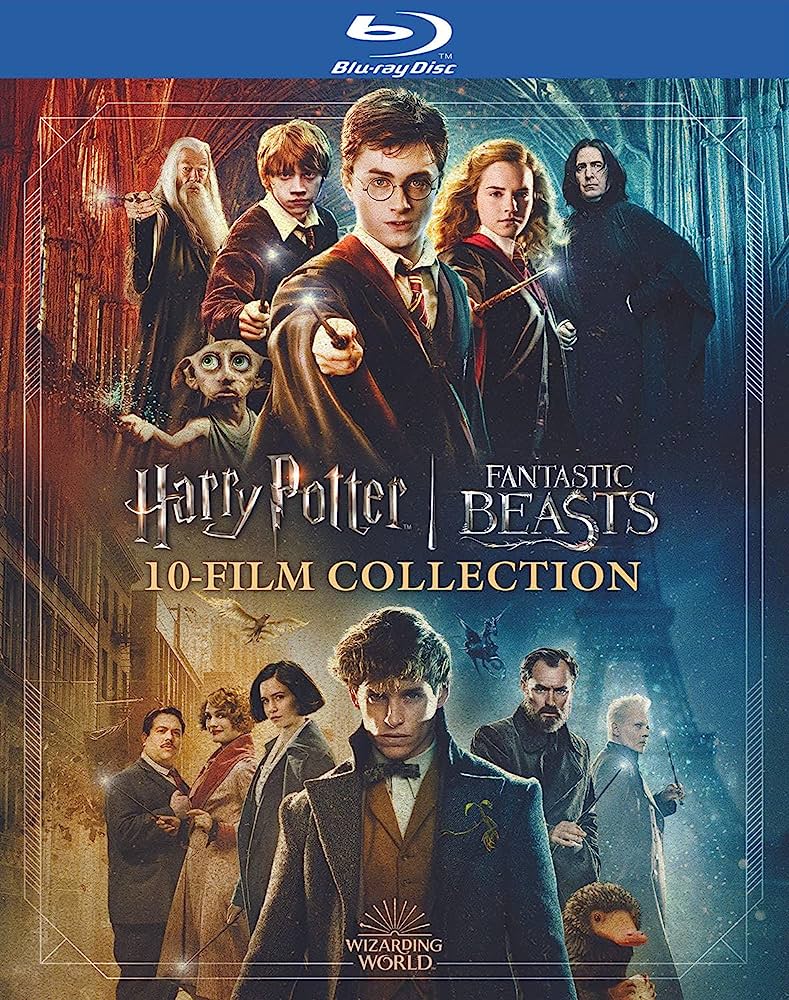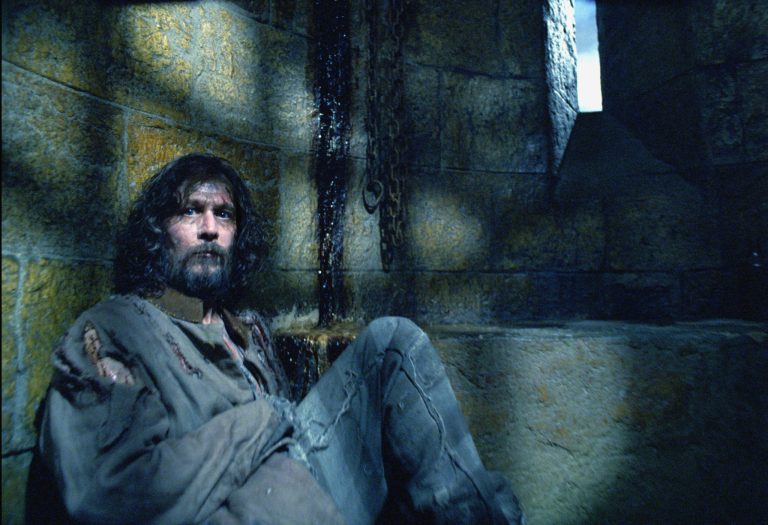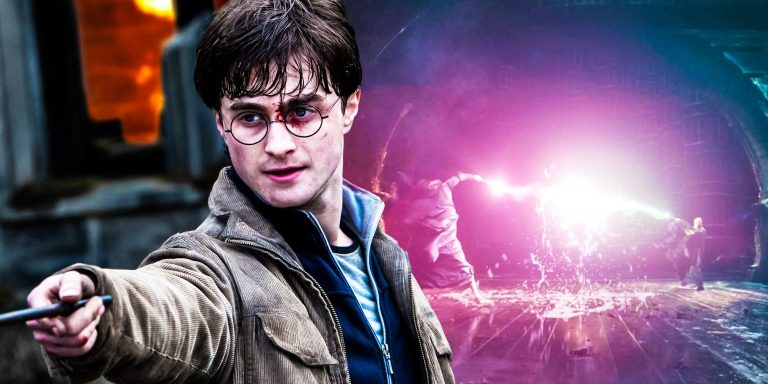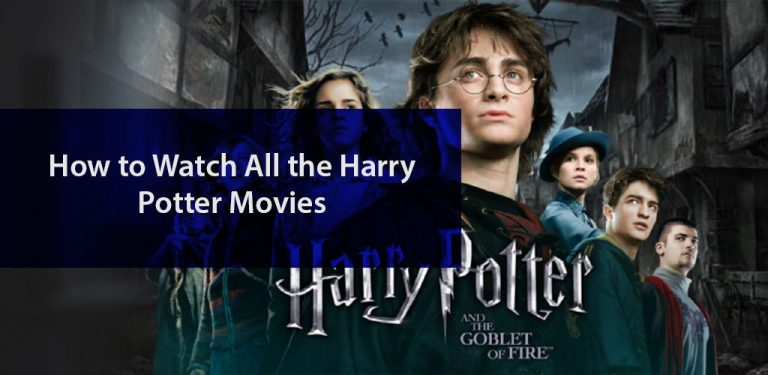The Harry Potter Movies: The Enigmatic And Complex World Of Wizarding Politics
If you’ve ever found yourself captivated by the magical world of Harry Potter, then you know that there’s more to it than just spells and broomsticks. Behind the enchanting adventures of our favorite wizard lies a complex and enigmatic realm of politics. Yes, that’s right, politics. In the Harry Potter movies, the wizarding world is not immune to the intricacies of power struggles, alliances, and the pursuit of control. So, grab your wand and join me as we delve into the enigmatic and complex world of wizarding politics.
From the first movie, “Harry Potter and the Sorcerer’s Stone,” to the epic conclusion in “Harry Potter and the Deathly Hallows,” we are introduced to a world where politics plays a significant role. As Harry, Ron, and Hermione navigate their way through Hogwarts School of Witchcraft and Wizardry, they encounter various political factions, each with their own agenda. Whether it’s the corrupt Ministry of Magic, the secretive Order of the Phoenix, or the oppressive Death Eaters, the wizarding world is rife with political intrigue.
As we explore the intricacies of wizarding politics, we’ll uncover the motivations and machinations of key characters like Albus Dumbledore, Lord Voldemort, and Severus Snape. We’ll analyze the themes of power, discrimination, and resistance that run throughout the series and see how they mirror real-world political struggles. So, get ready to unravel the mysteries of the Harry Potter movies and discover the hidden depths of the wizarding world’s political landscape. It’s time to uncover the secrets and unveil the true power dynamics that shape this captivating realm.
The Harry Potter movies take viewers into a thrilling world of wizarding politics, providing a glimpse into the enigmatic and complex workings of the magical government. From the Ministry of Magic to the intricate power struggles between different wizarding factions, the films explore the political landscape of the wizarding world with great depth and intrigue. With themes of corruption, loyalty, and the fight for justice, the Harry Potter movies offer a captivating look into the intricacies of wizarding politics.

The Harry Potter Movies: The Enigmatic and Complex World of Wizarding Politics
When it comes to the Harry Potter movies, there is no shortage of excitement and adventure. From the moment Harry discovers he is a wizard to the intense battles against dark forces, the films have captivated audiences around the world. But beneath the surface of magic and fantasy lies a complex and enigmatic world of wizarding politics.
In the wizarding world, politics play a significant role in shaping the events and outcomes of the story. From the Ministry of Magic to the various magical governing bodies, the decisions made by these institutions impact not only the characters but also the entire wizarding community. Understanding the intricacies of wizarding politics adds a layer of depth to the Harry Potter movies, revealing the power struggles, corruption, and moral dilemmas faced by the characters.
The Ministry of Magic: A Battleground for Power
The Ministry of Magic serves as the central governing body in the wizarding world. It is responsible for maintaining law and order, enforcing magical regulations, and overseeing the well-being of the magical community. However, throughout the Harry Potter movies, we witness the Ministry becoming a battleground for power and control.
One of the most prominent examples of this power struggle is depicted in the fifth movie, “Harry Potter and the Order of the Phoenix.” The Ministry, under the influence of the corrupt Minister Cornelius Fudge, tries to suppress the truth about Lord Voldemort’s return. This manipulation of information and suppression of dissenting voices highlights the dangers of unchecked authority and the lengths those in power will go to maintain control.
The Order of the Phoenix: A Resistance Against Corruption
In response to the Ministry’s corruption, the Order of the Phoenix emerges as a resistance movement, fighting against the oppressive regime. Led by Albus Dumbledore, this secret society aims to protect Harry and his friends while working to expose the truth about Voldemort’s return.
The Order of the Phoenix represents the importance of standing up against injustice and fighting for what is right, even in the face of overwhelming odds. Their actions demonstrate the power of unity and the significance of individual choices in shaping the course of history. Through their involvement in wizarding politics, the members of the Order become key players in the battle against evil.
The Triwizard Tournament: A Platform for International Relations
Another aspect of wizarding politics explored in the Harry Potter movies is international relations. The Triwizard Tournament, featured in the fourth movie, “Harry Potter and the Goblet of Fire,” brings together students from different magical schools, showcasing the complexities of diplomatic interactions.
The tournament not only tests the contestants’ magical abilities but also serves as an opportunity for the participating schools to establish relationships and foster cooperation. However, as the story unfolds, it becomes clear that not everything is as it seems. The tournament is manipulated for political gain, leading to a tragic outcome and highlighting the potential consequences of political maneuvering.
The Role of Dumbledore: A Symbol of Wisdom and Leadership
Throughout the Harry Potter movies, Albus Dumbledore stands as a symbol of wisdom, leadership, and the embodiment of fair and just governance. As the headmaster of Hogwarts School of Witchcraft and Wizardry, Dumbledore plays a crucial role in guiding and protecting Harry.
Dumbledore’s calm and measured approach to wizarding politics serves as a counterpoint to the corruption and power struggles within the Ministry. His unwavering commitment to truth and justice inspires others to follow suit and challenges the status quo. Dumbledore’s influence extends beyond the walls of Hogwarts, as he becomes a beacon of hope for the entire wizarding community.
The Legacy of Wizarding Politics
The intricate world of wizarding politics in the Harry Potter movies leaves a lasting impact on both the characters and the audience. It reminds us of the importance of questioning authority, standing up against injustice, and the consequences of political manipulation.
Through the exploration of the Ministry of Magic, the resistance of the Order of the Phoenix, the complexities of international relations, and the role of Dumbledore, the movies delve into the complexities of power and its impact on society. They serve as a reminder that even in a world of magic, politics play a crucial role in shaping the destiny of individuals and communities.
Key Takeaways: The Harry Potter Movies – The Enigmatic and Complex World of Wizarding Politics
- The Harry Potter movies explore the intricate and mysterious world of wizarding politics.
- Wizarding politics is not just about power and control, but also about magical creatures’ rights and social equality.
- The Ministry of Magic plays a crucial role in governing the wizarding community and maintaining law and order.
- The concept of blood purity and discrimination against Muggle-born wizards is a prominent theme in the wizarding political landscape.
- The rise and fall of Lord Voldemort highlight the manipulation and corruption within the wizarding political system.
Frequently Asked Questions
1. How does the Harry Potter series explore the complexities of wizarding politics?
The Harry Potter movies delve into the intricate world of wizarding politics by showcasing the power struggles, corruption, and alliances that exist within the magical community. Throughout the series, we witness the rise and fall of various political figures, such as Minister for Magic Cornelius Fudge and his successor, Rufus Scrimgeour. These characters embody the challenges faced by those in positions of authority as they navigate the delicate balance between upholding the law and protecting the wizarding world from dark forces.
The movies also highlight the impact of political decisions on individual characters, such as the controversial Educational Decree issued by Dolores Umbridge in “Harry Potter and the Order of the Phoenix.” This decree, which gave her significant control over Hogwarts School of Witchcraft and Wizardry, sparked resistance and led to a rebellion among the students, emphasizing the importance of individual freedom and standing up against oppressive regimes.
2. What role does Hogwarts School of Witchcraft and Wizardry play in wizarding politics?
Hogwarts School of Witchcraft and Wizardry serves as a significant backdrop for the exploration of wizarding politics in the Harry Potter movies. As one of the most prestigious magical institutions, Hogwarts becomes a microcosm of the wider wizarding world and its political dynamics. The school itself experiences power struggles and shifts in authority, with various headmasters and headmistresses making decisions that impact both the students and the broader wizarding community.
Additionally, Hogwarts becomes a breeding ground for political ideologies and movements. The formation of Dumbledore’s Army, a secret organization created by Harry Potter and his friends to combat the rising threat of Lord Voldemort, demonstrates how the school becomes a platform for resistance against oppressive regimes. Hogwarts symbolizes the importance of education, knowledge, and unity in the face of political turmoil.
3. How does the Ministry of Magic influence wizarding politics in the Harry Potter movies?
The Ministry of Magic plays a crucial role in shaping wizarding politics throughout the Harry Potter movies. As the governing body of the magical world, the Ministry is responsible for maintaining law and order, enforcing regulations, and making decisions that impact the lives of wizards and witches. However, the movies also expose the flaws within the Ministry, showcasing the dangers of unchecked power and corruption.
From the manipulation of information by Minister for Magic Cornelius Fudge in an attempt to discredit Harry Potter and Dumbledore, to the infiltration of Death Eaters within the Ministry’s ranks, the movies highlight how political institutions can be compromised by personal agendas and external influences. The Ministry’s actions and policies often mirror real-world political scenarios, reminding viewers of the importance of holding those in power accountable and fighting for justice.
4. How do the Death Eaters represent extremist ideologies in wizarding politics?
The Death Eaters in the Harry Potter movies serve as a representation of extremist ideologies within wizarding politics. Led by Lord Voldemort, they advocate for pure-blood supremacy and seek to establish a tyrannical regime where only those with “pure” magical heritage are given authority. Their actions and beliefs mirror real-world extremist groups who promote discrimination and prejudice based on race, ethnicity, or bloodline.
The movies explore the dangers of such ideologies by showcasing the devastation caused by the Death Eaters’ reign of terror. Their actions lead to the persecution and marginalization of non-pure-blood wizards and witches, emphasizing the importance of inclusivity and acceptance in a diverse society. The fight against the Death Eaters becomes a metaphorical battle against fascism and oppression, reminding viewers of the significance of standing up against hatred and discrimination.
5. What lessons can be learned from the portrayal of wizarding politics in the Harry Potter movies?
The portrayal of wizarding politics in the Harry Potter movies offers valuable lessons for viewers. It highlights the importance of integrity, transparency, and accountability within political systems. The movies emphasize the need to question authority, challenge oppressive regimes, and fight for justice and equality. They also underscore the power of unity and the strength that can be found in diverse communities coming together to combat injustice.
Furthermore, the portrayal of wizarding politics serves as a reminder that political decisions have far-reaching consequences and can deeply impact individuals and societies. The movies encourage viewers to be informed citizens, to think critically about the actions of those in power, and to actively participate in shaping the political landscape for the betterment of all. Ultimately, the Harry Potter movies provide a thought-provoking exploration of wizarding politics that encourages viewers to reflect on the complexities of their own political systems.

How Much Money Every Wizarding World Film Made: RANKED (Harry Potter Breakdown)
Final Summary: Unlocking the Intricacies of Wizarding Politics in the Harry Potter Movies
As we delve deeper into the captivating world of the Harry Potter movies, one aspect that stands out is the enigmatic and complex realm of wizarding politics. From the power struggles within the Ministry of Magic to the intricate alliances and betrayals, this aspect of the series adds a layer of depth and intrigue that keeps us on the edge of our seats. Through the lens of wizarding politics, we witness the clash between good and evil, the consequences of corruption, and the importance of standing up for what is right.
Throughout the series, we see the rise and fall of various political figures, each with their own motivations and agendas. From the authoritarian rule of Dolores Umbridge to the manipulative tactics of Severus Snape, these characters showcase the corrupting influence of power. The movies teach us that politics, even in the wizarding world, is a complex and multifaceted game where loyalty and betrayal often go hand in hand.
Moreover, the Harry Potter movies highlight the significance of unity and resistance against oppressive systems. The formation of Dumbledore’s Army and the Order of the Phoenix demonstrate the power of collective action and the importance of fighting for justice. These themes resonate with audiences as they parallel real-world struggles against tyranny and injustice.
In conclusion, the Harry Potter movies not only captivate us with their magical elements but also provide a thought-provoking exploration of wizarding politics. Through intricate storylines and compelling characters, we are reminded of the complexities of power, the consequences of corruption, and the importance of standing up for what is right. As we immerse ourselves in this enigmatic and captivating world, we are encouraged to reflect on the lessons it offers and to apply them to our own lives. So, let us continue to be inspired by the magic of the Harry Potter movies, as we navigate the complexities of our own political landscapes.






